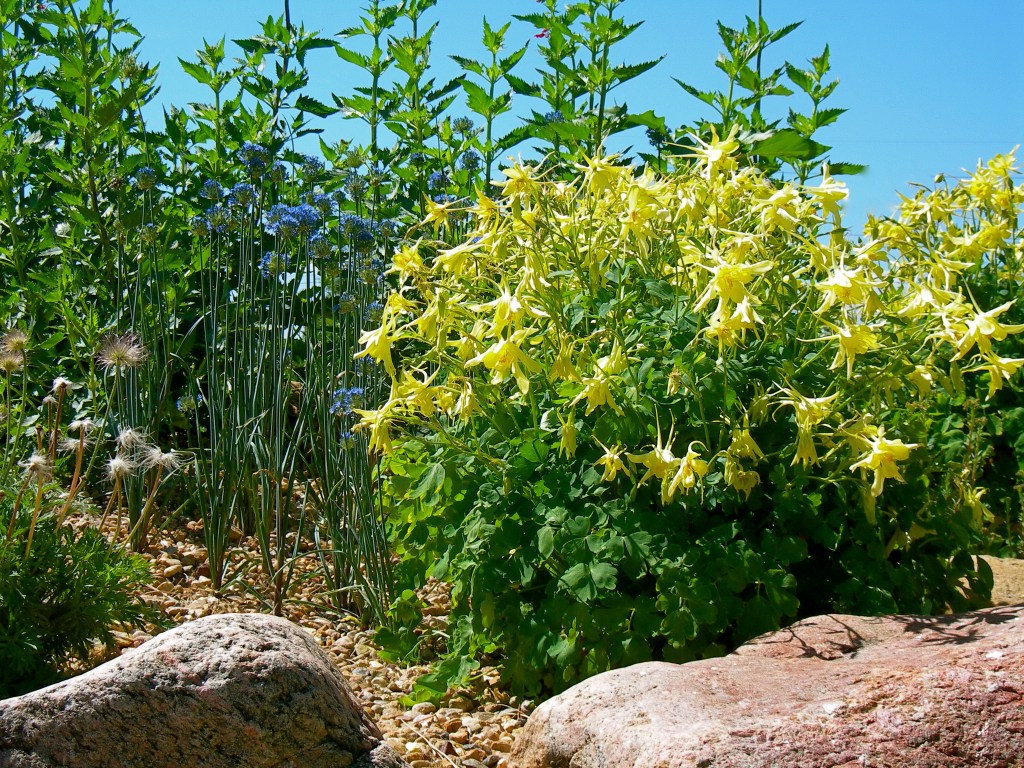May’s plant sales are wrapping up and you hopefully got all your vegetables and herbs in after the last frost.
Next up: June, the month to focus on plants that are native to Colorado and the Rocky Mountain region. It’s the sweet spot for sharing and transplanting native plants as they need a tad more time and effort to get going.
It’s important that those native-plant roots get established as soon as they can because July and August can have hot streaks, as we all know. Native plants tend to take longer to propagate than the typical vegetable garden plants, since some seeds require special treatment and many are grown in people’s yards, outside of greenhouse conditions, according to Peggy Hanson of Wild Ones Front Range.
Plant swaps are events where volunteers give away seedlings for free — so they are more plant sharing, since none of them requires that you offer anything in exchange other than the willingness to learn and grow. (However, you are invited to donate extra regionally native plants that you may have growing in your yard.)
These swaps are no small feat, with teams of volunteers and organizations involved at all parts of the cycle, from the seed saving, propagating, transplanting, and event organization. For each event, there is a managed inventory of seedlings that volunteers propagate from gathered or donated seeds from previous years, or from plants that volunteers salvage from vetted gardens and donate.
Last year, the Denver Native Plant Swap included about 4,000 plants with 130 species. For 2024, NOCO Plant Swap volunteers planted about 3,000 seeds, including expanding its native grasses to increase plant diversity. Annemarie Fussell of Wildlands Restoration Volunteers, event coordinator for the NOCO Plant Swap, expects about another 500 or so plants will be donated on the day of the event.
All of the organizations and volunteers involved in these plant swaps are dedicated to educating about native plants, promoting environmental stewardship for healthier ecosystems, and fostering sustainable gardening practices. One goal is to grow pollinator highways of native plants that help connect or bridge neighborhoods, cities, farms and prairie lands. The swaps also are about improving access to native plants; they help bridge the gap of inadequate nursery supply.
What to know before you go
These upcoming plant swaps all offer native plants that are free and grown without herbicides, pesticides, fungicides or synthetic fertilizers to protect pollinators and you. Bring containers to carry home your adopted plants. While supplies are impressive, there will be a limit to the number of plants each person or household can take home in order to get them into as many different locations as possible.
You do not need tons of outdoor space; some can even be grown in containers on patios or balconies. If you are adding native plants into your existing landscape, you can start small. Many will actually spread on their own through reseeding.
Yarrow is one of my favorites as an easy grower and a favorite of pollinators with their large floral “landing pads.” Blue flax is another beauty.
All of these swaps will accept dig-divide-donate. If you have native plants in your yard, bring them to donate. The swaps ask that you label each container with both the Latin and common name of the plant. Ensure that your donations are pesticide-free and noxious weed-free.
June native plant swaps

NOCO Plant Swap, part of the Fort Collins Xeriscape Garden Party: This swap is part of a larger event, EcoFest. There will be free classes on topics like waterwise plants, firescaping, and low water and low maintenance gardening. You can recycle your 2.5-inch pots and trays at a designated location there. Saturday, June 1, 10 a.m. to 1 p.m., Fort Collins City Hall, 300 Laporte Ave., Fort Collins.
Boulder Regional Plant Swap: This is the Boulder area’s inaugural native plant swap hosted by Wild Ones Front Range volunteers. It is open to the public. Everything donated is volunteer, non-commercially grown. Sunday, June 2, from 1 to 4 p.m., Dry Creek Farm, 9120 N. 75th St., Longmont.
Denver Pollinator/Native Plant Swap: This swap is in its fourth year, hosted by Wild Ones Front Range, People and Pollinators Action Network and EarthLinks. Saturday, June 22, from 10 a.m. to 1 p.m. at EarthLinks, 2746 W. 13th Ave., Denver.
Go to frontrange.wildones.org for more details on all these plant swaps. An annual membership to the Front Range Wild Ones start at $40 a year; for students and families with limited income, it’s $25.
Tamara Yakaboski is a freelance writer.
